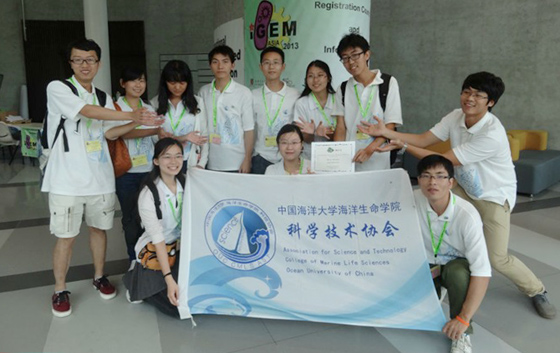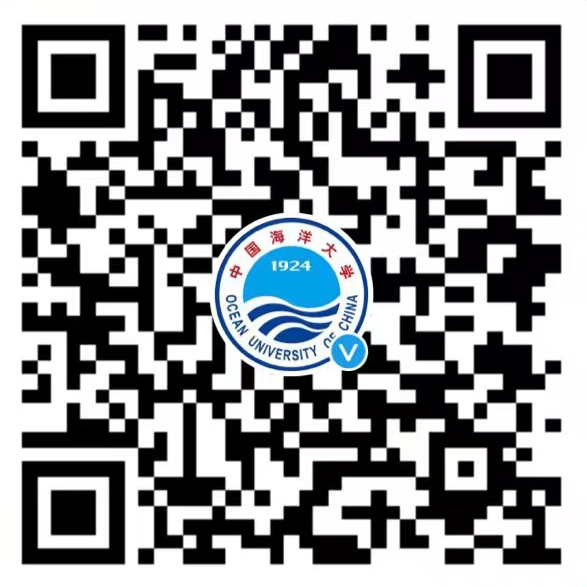
OUC-China iGEM, a team of students representing Ocean University of China (OUC), was honored with the gold medal at the International Genetically Engineered Machine Competition (iGEM) Asia, held at the Chinese University of Hong Kong. The team also claimed one of the nine individual awards, the Best Model, in the competition.
Established at the end of 2012, the iGEM team, representing OUC this year, is comprised of 11 undergraduate students from six different colleges and centers, including Zhong Xiaodong as the team leader, Sun Mengqi, Sun Xue, Wang Yu, Wang Qiu and Lu Qianyun from the College of Marine Life Science, Wang Wenjun from the Teaching Center for Fundamental Courses, Qin Kaili from the College of Fisheries; Lin Xu from the College of Food Science and Engineering, Zhong Lei from the College of Mathematical Sciences, and Zheng Yuchen from the College of Information Science and Engineering.
Focusing on the program “Towards Artificial Organelle-Reconstructing the Magnetosome Membrane in E. coli”, the OUC team, supported by the Innovation Lab of the Experimental Teaching Center for Marine Life Sciences Innovation, and Entrepreneurship, concentrated their efforts on how to construct the magnetosome membrane in escherichia coli by the means of synthetic biology.
As one of the top-level international scientific and technological competitions, iGEM attracts over a hundred teams from renowned institutions of higher learning, both domestically and internationally. The Asian region was represented by 68 teams, consisting of student teams from prestigious institutions including Peking University, Tsinghua University, Taiwan University, the Hong Kong University of Science and Technology, the University of Tokyo, Kyoto University and Korea University.
The International Genetically Engineered Machine (iGEM) competition is a worldwide synthetic biology competition that was initially aimed at undergraduate university students, but has since expanded to include divisions for high school students and entrepreneurs.
Student teams are given a kit of biological parts at the beginning of the summer from the Registry of Standard Biological Parts. Working at their own schools over the summer, they use these parts and new parts of their own design to build biological systems and operate them in living cells.







